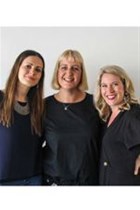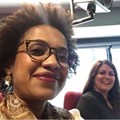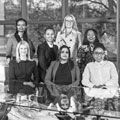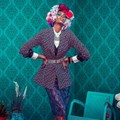#BizTrends2019: The untapped opportunity of female empowerment
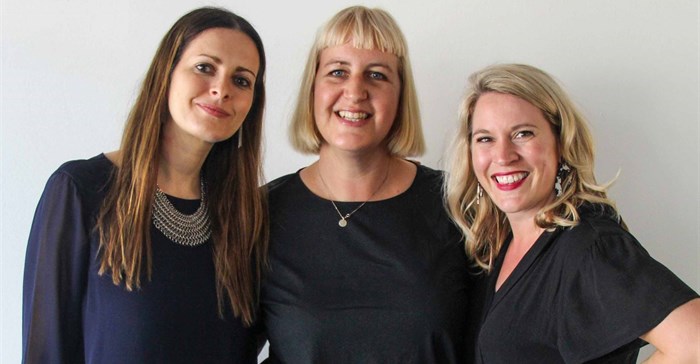
In advertising, feminism 2.0 is being embraced in consumer-facing communications and, to an extent, behind the scenes at agencies. Countless brands, from Vodafone to Elizabeth Arden to McDonald’s, are championing women’s issues, and “femvertising” has become so popular that it has earned its own award show.
And at the organisation level, we’re chipping away at a woeful lack of representation in senior positions – according to the 3% Movement, female creative directors in the USA rose from a paltry 3% in recent years to 11% today.
State of our nation
But that’s internationally. In South Africa, the tides of change are trickling in, albeit at a slower pace. On a consumer level, the empowerment narrative has taken hold, seeping into mainstream culture; we’ve all seen the magazine articles declaring “10 Ways to be a Boss” and t-shirts with feminist slogans, now sold by mass retailers.
And a host of female-focused groups are popping up, providing women with opportunities to connect and grow their careers (Cape Town chapter of SheSays, 7% Tribe, Women in Marketing).
Yet at a business level, progress has stalled; the percentage of women in senior leadership roles has been relatively flat for years. Bain and Co conducted research and found representation increased only 2% from 2004 to 2017 (to 28%).
Even though 46% of people entering the workplace are women, only 7% of executive directors on boards are females. And in advertising, we still don’t have the numbers on female representation – something that the Cape Town chapter of SheSays is looking to change with an industry-wide survey in 2019.
The aspiration gap
Diving into the backstory behind the stats, the numbers do not represent a lack of interest or motivation.
Bain’s research uncovered that South African women actually aspire to top management positions more than men when they first enter the workforce: 58% of non-management females agree “I aspire to reach a top management position,” compared to 48% percent of males. And starting out, they are just as confident as men they will achieve their goals.
Yet somewhere along their journey, women’s ambitions are squashed. There’s a sharp dip in confidence just two years after entering the working world – women in junior and middle management ranks are on average 11% less confident than their male counterparts.
Why the sudden drop?
There are several forces are at play.
The first is, unsurprisingly, at the organisational level. As women move up the ranks, they systematically push against challenges that hold them down, even in well-meaning companies (the majority of top management surveyed say they believe in gender equality).
The Bain study found “promotion fairness” and “resources and initiatives to promote gender equality” were the largest organisational factors women felt limited their upward mobility. “Senior advocacy” and “inspired by leadership” were also factors, albeit less significant.
Beyond organisational policies, company culture and co-worker’s behaviour can make women feel excluded – 54% feel a lack of respect or acknowledgment, and 17% said that they experienced sexual overtures or sexual harassment at least once per quarter, with 6% experiencing it once per month or more.
Critically, the second key barrier came from the people around women outside their organisations – communities and families. Women who aspire to reach senior leadership positions feel less supported by those around them: only 58% of survey respondents said that their communities believe in equal opportunities for men and women, while 37% of respondents believe that men close to them have a problem with women earning more.
Many women limit their aspirations by internalising these social norms, adjusting their dreams so as to not ruffle feathers.
These stats are greatly hurting South African businesses (and the women that work for them), as study after study shows that gender representation at top levels leads to better business outcomes: McKinsey & Co., The Peterson Institute for International Economics, and Nordea have shown that organisations with women in the C-Suite reap benefits in their bottom line.
Let’s do this
South African women are ready for equality. Women are seeking to feel empowered, to break down the barriers that push them down and prevent them from reaching their potential. Equally important, businesses need the financial benefits that come from gender diversity and female leadership.
To challenge these worrisome statistics will take a two-pronged approach:
Firstly, efforts must come from businesses at the organisation level. This is a no-brainer for the communications industry and an easy win at a time when few companies are tapping into this strategy; putting women in leadership positions has become a competitive advantage. And something to shout about – just ask the good people at Joe Public.
The harder part will be pushing against long-standing social and cultural norms. This cannot be done with a few quick hiring or policy decisions. Yet this is where our unique power as advertisers really kicks in. As architects of culture, we have the power to shape the ideas that we collectively buy into.
Thus far, only a handful of brands have risen to the challenge, despite strong interest on the consumer front. From a strategic perspective, we know the best opportunities come from tapping into unmet consumer needs, especially if they overcome a barrier/pain point.
This represents a huge white space for brands to win favor with a large part of South Africa’s market – one with increasing purchasing power. And while statistics don’t exist on women’s overall buying power, market signals show they’re increasingly powerful and represent 47% of the country's e-commerce market.
This is the second, and equally important, call-to-arms for our industry.
The bottom line is – it makes financial sense to lift women up. Championing their issues is good for business – for our own businesses and those we represent as brand partners.
